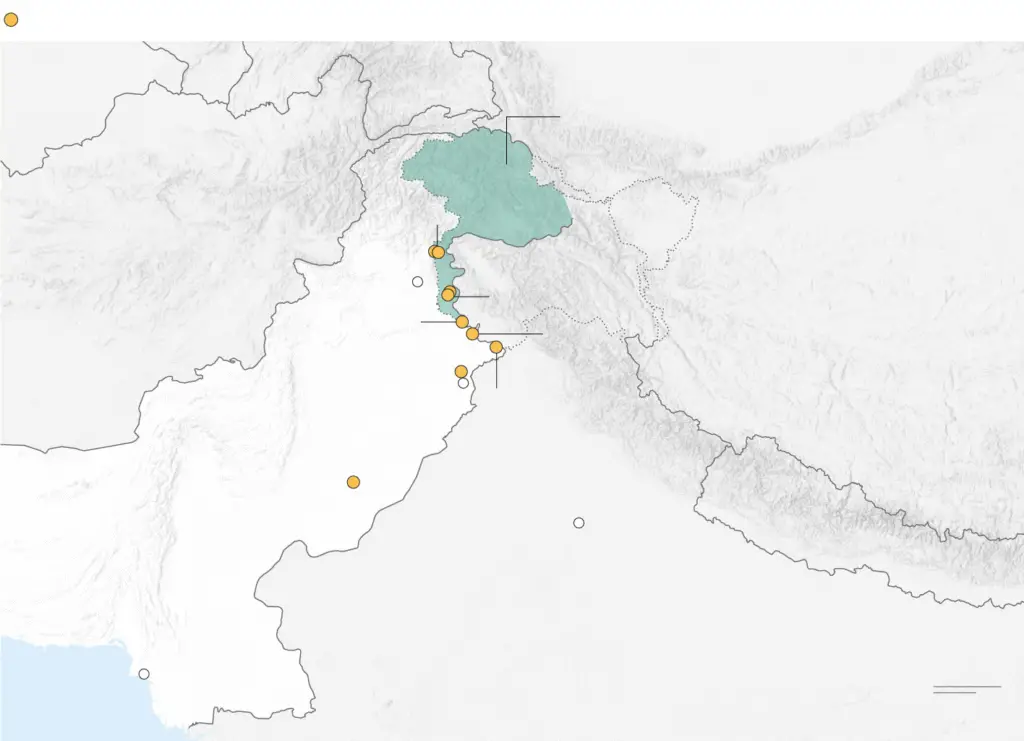
Table of Contents
As South Asia wakes up to rapidly rising tensions, both India and Pakistan have exchanged serious allegations of drone and missile attacks that have resulted in casualties, property damage, and widespread panic across border towns.
Pakistan’s military has claimed it shot down 25 Indian drones within its airspace. Meanwhile, India says it successfully neutralized a Pakistani drone and missile strike aimed at its military installations. The tit-for-tat exchanges are deepening fears of a broader conflict between the nuclear-armed rivals.

Pakistan’s Prime Minister Vows Retaliation
Following reported Indian strikes in Punjab province and Pakistan-administered Kashmir, which killed at least 31 people, Pakistan’s Prime Minister Shehbaz Sharif issued a strong statement:
“We will avenge the blood of our innocent martyrs.”
This marks one of the most serious flare-ups in recent years, prompting international concern over potential escalation.
🔁 Live Updates (Auto-Refresh)
⏱️ 11:30 GMT — Are India’s Strikes Really a Deterrent?
By Federica Marsi & Yashraj Sharma | Reporting from New Delhi, India
According to South Asia Terrorism Portal’s Ajai Sahni, the Indian strikes seem more geared toward domestic political messaging than actual deterrence.
“This is all a domestic theatre… The Indian strikes have no deterrent value.”
Military analysts question the effectiveness of India’s actions in discouraging future attacks or resolving long-standing security challenges.
⏱️ 11:20 GMT — Security Officials in Contact Amid Crisis
Pakistan’s Foreign Minister Ishaq Dar told Reuters that communication lines between the two countries’ security offices are open, with both national security advisors reportedly in contact.
The military hotline is still functional, serving as a critical backchannel as formal diplomacy stalls.
⏱️ 11:15 GMT — Pakistan: Kashmir Attack “Orchestrated”
Pakistan’s Defence Minister Khawaja Asif responded to India’s accusations over the April 24 Pahalgam attack, which India alleges triggered the current escalation.
“This is a homegrown resistance in Indian-occupied territory,”
“India may be carrying out false flag operations to justify aggression.”
Asif also warned of the nuclear risk the crisis poses and called on global leaders to intervene diplomatically.
▶️ Watch the full interview here.
⏱️ 11:00 GMT — 🗺️ Infographic: Mapping Drone Warfare
An interactive visual shows the trajectory of Indian drones allegedly intercepted by Pakistan’s military.
🖼️ Check out the infographic here to understand how drone warfare is reshaping frontline tensions.
⏱️ 10:50 GMT — Fear on the Streets of Pakistan
By Osama Bin Javaid | Reporting from Islamabad
Residents in Lahore and border towns report panic, evacuations, and the eerie sound of early-morning explosions.
Power blackouts have been enforced in some areas as a security measure.
Civilian lives have been deeply affected, and flight suspensions have added to the anxiety.
A critical concern is the Indus Waters Treaty, which governs water sharing between the nations. With tensions spiraling, experts worry the treaty — vital to millions — could be jeopardized.
“Unless global guarantors act fast, this could spiral out of control.” — Local analyst
🌍 What’s at Stake
With over 31 civilians dead, dozens injured, and high-level diplomatic contacts ongoing in the shadows, the situation remains extremely fragile.
This crisis not only threatens regional peace but also places global attention on South Asia, as two nuclear powers stand dangerously close to armed confrontation.
📢 Stay Informed
Keep checking back here for verified updates and in-depth analysis as the India-Pakistan situation unfolds.
🔁 Auto-refreshing every few minutes
India-Pakistan Conflict, Drone Attacks, Kashmir, Shehbaz Sharif, Indo-Pak Tensions, Nuclear Risk, Indus Waters Treaty, Border Crisis, Al Jazeera News






